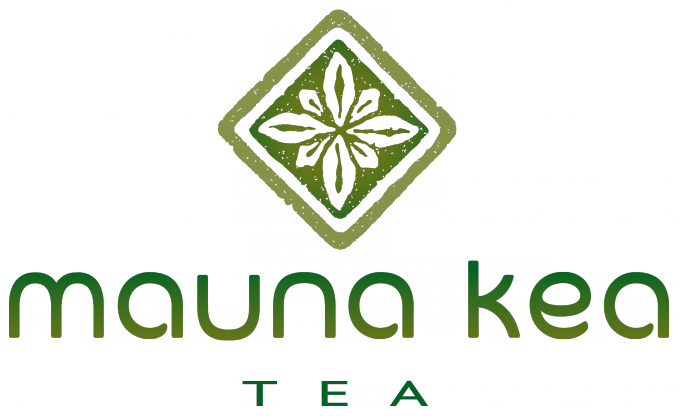What is life?
I have always tried to make sense of life. What is its purpose exactly? To me, life didn’t make sense at early age. Most children grow up and find themselves conforming to society. I instead went to the wild to find my answer.
I wasn’t religious, but I liked learning different view points or philosophies. Regardless of what I learned, nature always made the most sense to me. After all, the natural world governs the laws of mankind. If I could do something that made sense in the wild, I thought my life would be complete.
College years
Studying philosophy in college threw a lot of questions at me and made me think more logically and constructively. I became fascinated by Chinese and Japanese philosophy and read books about Taoism, Confucianism and Buddhism. I was also intrigued by the Native American cultures that reside with nature. I started to practice Zen meditation and a martial arts to look deeper into myself and my own limitations. I felt that the things I did and learned connected together like an interwoven piece of fabric.
I continued to look for my answer about life. As I studied one thing, my interest spread to others. Buddhism and Taoism lead to my interest to self-sufficient living and harmony with nature. I took gardening classes, volunteered at community gardens and organic farms, and studied basic farm and gardening techniques and concepts, but I was more drawn to the wild and the fantasy of being free from the nonsense of society.
Backpacking trips
I took several short backpacking trips into Sierra-Nevada Mountains. I clung to my need for ‘essential’ camping gear and, like many, carried a tent, boots, a stove, water filter, and a few changes of clothes. Carrying the backpack full of stuff was not easy. Over time I realized that I could live without most of the contents so I shed more weight with each successive trip. I replaced my tent with a tarp, boots with sandals, a stove with some matches, and left the no longer clean clothes behind.
I hiked from the Southern California desert to to the Columbia River on the Oregon-Washington border by way of the Pacific Crest Trail. During the 2 and a half month trip, I met many who enjoyed boasting their success in hiking from Mexico to Canada. What stuck me was that the long days (minus the outdoor environment and grueling physical demands) resembled most people’s working days.
I came to realize that the trail did not have my answer but it was becoming more and more clear that what I wanted to do was live being self-sufficient and sustainable, living in harmony with nature and feeling good about how I live my life.
Meeting Nature Farming
I majored in Environmental Sciences at University of California at Berkeley but I had difficulties with the study schedule. At the same time I came across many books and ideas about sustainable farming practices. Permaculture, Nature Farming and Biodynamic farming all pointed me in a new directions, but the book “One Straw Revolution” by Masanobu Fukuoka left a deep impression on me.
I took some of Mr. Fukuoka’s ideas into my senior thesis. There was a restoration project going on at a local national parks where I used the seedball casting technique for revegetation. This project gave me time to study more about natural farming. Around the same time I was involved in a community garden project which gave me the opportunity to experiment with the natural farming techniques in an urban garden environment.
Grand Adventure – Living off the Land
The next summer I decided to go back into the Sierra Wilderness, but this time without a map, money, or itinerary. Just me and a small backpack with the truly essential gear, a tarp, one cooking pot, fishing gear, a knife, and a few books. I also decided not to take any food except rice and tea. Being a Japanese man, these two foods have always been very important to me.
As the trip turned out, I learned a good lesson, and I learned it the hard way. I was overconfident and thought I could care for myself for 3 months alone. I hiked in to the most remote spot I could find. It was a beautiful place with clean water and air and a little patch of ground to set up my camp until the snow melted. I found that in that condition it is hard to find food. Security of food became my main issue. My rice ran out very fast. I could identify a few edible greens, but they don’t have substantial calories. I fished and ate a lot of fish. Sometimes I was so hungry that eating bugs and ordinarily unpalatable creatures seemed acceptable. I also found myself chasing deer and bear with a small hand knife. I tried setting traps without much success. I found that it was much easier to get food from people than from nature.
If my wilderness experience was successful, I may have ended up as a hunter, but instead it made me realize how important it is to have the security of food. It was as if the world food supply was cut off and mankind suddenly had to exist on the limited supply of food from family gardens. How much food do even the highly experienced home gardeners produce in the US? The trip also made me realize that food free of contamination was also important. This discovery led me to organic farming.
My Grandmother
My grandmother lived during WWII in Japan where there was very little to eat. Many people in her generation still grow their own foods. She was always conscious about producing enough for the entire family from the home garden and preserving food for winter. It didn’t matter to her whether it was organic. Natural ingredients were always available when she needed. One time she gave me a cold medicine that she made a decade ago from wild herbs in the region. She uses the knowledge of which plants to cultivate and use which was passed down to her through generations. While she understood seasonality and working with nature to produce food, I didn’t, but still felt like I had the knowledge to survive. When I put my limited experience to the test in the Sierra Mountains, I realized how little I knew.
As my interest in farming and food production grew, I studied more about natural farming. I learned that Mokichi Okada, well known in natural farming in Japan, taught a group of farmers that pest problems are only symptoms of fertilizer application. Also, he said that crop rotation is neither necessary nor desired, and more sensitive crops tend to do better without it. I had a hard time understanding these statements because I had been taught to fertilize to grow a crop. There was no question about that, but when I found out that there were quite a few people doing natural farming in Japan without fertilizer and pesticides I visited their farms to see how the natural method worked. I also picked up some Japanese farming magazines that featured no fertilizer farming, and I was convinced.
No Fertilizer Farming
The reason the crops grown in this style do not use pesticides not simply for certification but because pests do not appear. In fact, crops grown in this way are known to heal cancer patients who cannot consume even organic foods grown with fertilizers and organic pesticides.
Food as Medicine
I have read and talked to people who claim that foods grown through natural farming are useful not only as nutrition but as medicine. Even Chinese medicine uses upper, middle and lower medicines for different situations. Upper medicine is a common vegetable consumed on a daily basis. These foods give vitality while middle and lower medicine are used to heal illness in specific situations.
Tea is one thing that is consumed regularly thus belongs to the upper medicine category. If it is produced according to nature farming, it gives vitality and sustains well-being. Even a slight application of fertilizer is known to destroy the balance of the plant. How can tea become an elixir of life when produced with chemicals and greed for high yield?
Life, No fertilizer, Nature farming
On my journey, I found that life unfolds in mysterious ways. To understand the life of others sometimes you have to forget what is logically correct. Nature has her own way of doing things and we can only function as a part of her.
Life finally made more sense to me after I came to see the enemies of pests and weeds as a key to problem solving in farming. When I discovered that the purpose of my own existence is to work with them the heavy burden on my shoulders suddenly disappeared.
Life has birth and death and they are both to be celebrated. When a plant germinates, grows, reproduces and dies,the cycle that nature intended is complete. As life completes its cycle it leaves behind a a healthier environment and any negative energy is removed. “Nature has been designed in such a way that it purifies everything and produces rich biota and biomass,” is stated in the principals of nature farming.
One of the principles of natural farming is to “observe nature,” which reveals a lot of things. Nature farming begins with observation. In fact, most of the nature farming principles are philosophical statements and do not describe techniques with which to farm. The act of observation leads to ones own farming philosophy and corresponding skills and techniques.
The philosophies of Mokichi Okada, the founder of Nature Farming
- Respect Nature and Conform to Its Laws
- Allow the Living Soil to Exhibit Its Great Potential Abilities.
The five basic principles of Nature Farming are:
- To produce foods which can sustain and promote human health.
- To be beneficial economically and mentally to both producers and consumers.
- To be practicable by anyone, with durability.
- To be responsible for environmental integrity, paying respect to nature.
- To be responsible for the production and supply of provisions in such a manner to meet the growth of population.
Excerpts from INFRC.

